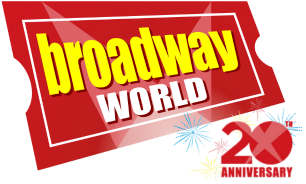Anti-Semitism Examined In Merchant of Venice at the MJH 4/13
On Wednesday, April 13 at 7 p.m., a panel of esteemed Shakespearean and religious scholars and experts will examine Shylock, Shakespeare, and the Jews: Anti-Semitism in The Merchant of Venice. Barry Edelstein, director of The Public Theater's Shakespeare Initiative, and author of Thinking Shakespeare; Columbia University Professor James Shapiro, author of Shakespeare and the Jews; and Rabbi Steven Weil, Executive Vice President of the Orthodox Union, will delve into the controversial issues surrounding one of the Bard's most complex characters and most beloved plays. New York Times theater reporter Patrick Healy will moderate the discussion.
Tickets are $10 and $5 for members of the Museum and The Public Theater. Tickets are available online at www.mjhnyc.org or by calling the Museum box office at 646.437.4202.
Patrick Healy is the theater reporter for The New York Times, a position he has held since December 2008. Previously, Mr. Healy covered the 2008 presidential election and was the lead Times reporter covering Hillary Clinton's 18-month campaign. He joined The Times in January 2005 as a political reporter in the Metro section. In 2005 and 2006, he covered the campaigns of Mayor Bloomberg, Eliot Spitzer, Andrew Cuomo, and then-Senator Clinton. Before coming to The Times, Patrick was a reporter for the Boston Globe from 2000 until late 2004. While at The Globe he covered the presidential campaign of Sen. John Kerry; spent several months in Afghanistan and in Iraq covering the wars there; and wrote on higher education in the Boston area and nationally. From 1994 until 2000, Patrick worked for The Chronicle of Higher Education, first as a reporter for government and politics and later as political editor. He was a finalist for the 2002 Pulitzer Prize for Beat Reporting, for his higher education stories and investigations.
Barry Edelstein has directed Shakespeare at The Public Theater and at venues around New York City and the country. He staged Julius Caesar starring Jeffrey Wright at the Delacorte in Central Park and The Merchant of Venice, featuring Ron Leibman's OBIE award-winning portrayal of Shylock at The Public. From 1998-2003 he was Artistic Director of Classic Stage Company, where he directed Richard III starring John Turturro and Julianna Margulies and The Winter's Tale starring David Strathairn. At the Williamstown Theater Festival, he directed As You Like It starring Gwyneth Paltrow.
James Shapiro is the Larry Miller Professor of English and Comparative Literature at Columbia University, where he has taught since 1985. He is the author of several books, most recently A Year in the Life of William Shakespeare: 1599. He has been awarded numerous fellowships and grants from institutions such as the Guggenheim Foundation, the National Endowment for the Humanities, and the New York Public Library's Cullman Center for Scholars and Writers. He has written for The New York Times, the Financial Times, the Los Angeles Times, and other publications.
Rabbi Steven Weil is a popular teacher and lecturer, having delivered invocations for former President Bush and Governor Schwarzenegger among others. He has served internationally as scholar in residence on land and on sea, and is a passionate advocate for Israel and for Jewish education.This program is presented in conjunction with The Public Theater as part of The Public Forum series. The Public Forum is an exciting series of lectures, debates, and conversations that showcase leading voices in the arts, politics, and the media. The Public Forum explores issues that are raised by plays in The Public's season, as well as the political and cultural headlines of the day. In keeping with the best traditions of The Public, the Forum hosts a wide diversity of views and brings the theater into contact with the society around it.
About the Museum of Jewish Heritage
The Museum's three-floor Core Exhibition educates people of all ages and backgrounds about the rich tapestry of Jewish life over the past century-before, during, and after the Holocaust. Special exhibitions include Last Folio: A Photographic Journey with Yuri Dojc, opening March 25; Fire in My Heart: The Hannah Senesh Story, on view through August 7, 2011; and The Morgenthaus: A Legacy of Service, on view through September 5, 2011. It is also home to the award-winning Keeping History Center, an interactive visitor experience, and Andy Goldsworthy's memorial Garden of Stones. The Museum offers visitors a vibrant public program schedule in its Edmond J. Safra Hall and receives general operating support from the New York City Department of Cultural Affairs.
Photo Credit: Joan Marcus
Videos

